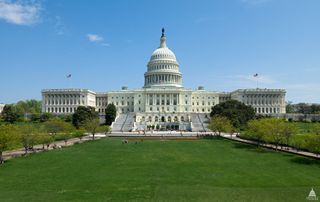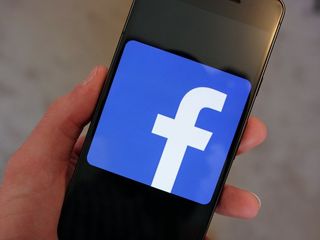Trump's vow to veto defense spending bill without revoking Section 230 is political theater

On Tuesday evening, President Donald Trump tweeted that he would veto the National Defense Authorization Act, a series of federal laws the specify the annual budget and expenditures of the U.S. Department of Defense, unless a provision is written into the bill that repeals Section 230 of the Communications Decency Act.
If the NDAA is not passed, servicemen and women don't get a paycheck.
The NDAA is a vital bill that determines things like munitions budgets but also is required to be in effect so members of the U.S. armed services are paid. Without any sort of budget, the Department of Defense has no money. This is why the bill has been easily passed every year since its inception in 1961.
While Trump says he will veto the bill without language that repeals Section 230, lawmakers plan to move forward without such restrictions because they know there will be enough votes to override any presidential veto.
New - Jim Inhofe, chairman of Senate Armed Services, told me he plans to move ahead with a defense authorization bill -- and it will NOT include provisions to repeal protections for social media companies, defying Trump's veto threat.
Inhofe said he has relayed that to TrumpNew - Jim Inhofe, chairman of Senate Armed Services, told me he plans to move ahead with a defense authorization bill -- and it will NOT include provisions to repeal protections for social media companies, defying Trump's veto threat.
Inhofe said he has relayed that to Trump— Manu Raju (@mkraju) December 2, 2020December 2, 2020
This isn't the first time President Trump has threatened to veto the NDAA; earlier this year he said he would veto the bill unless a provision to remove the names of confederate generals from military bases was removed. Last year, the NDAA passed the House by a vote of 377–48 and the Senate by a vote of 86–8 even though Republicans objected to language inserted that guaranteed paid parental leave for federal employees. The NDAA is that important to our country.
The news here is startling but not unexpected considering the current state of U.S. politics and the people who make up the three heads of our government. Constant infighting has become the new norm, but troops have always been paid. Thankfully, the NDAA will likely pass if Congress moves forward even if Trump uses his veto power.
What is Section 230?

Section 230 refers to a portion of the Communications Decency Act, which is part of the Telecommunications Act of 1996. The Communications Decency Act subsists of two main parts: an attempt to regulate pornography and obscenity on the internet, and rules about who is liable when such materials are posted. A large portion of the act was struck down by the Supreme Court in 1997 as unconstitutional, but Section 230 remains.
Section 230 basically says that we are responsible for the things we say on the internet.
Section 230 says that "No provider or user of an interactive computer service shall be treated as the publisher or speaker of any information provided by another information content provider" (47 U.S.C. § 230). This means that companies that host or republish speech are not responsible for what users might do with the service.
Be an expert in 5 minutes
Get the latest news from Android Central, your trusted companion in the world of Android
Section 230 applies to social media companies like Twitter and Facebook, but it also applies to your Internet Service Provider and any other "interactive computer service providers". While there are exceptions for criminal claims and intellectual property claims, CDA-230 provides a broad set of protections for all internet platforms.
Without CDA 230, entities like YouTube or Yelp, along with Facebook and Twitter would not exist because each and every piece of user-generated content would need to be reviewed to make sure no objectionable content was submitted. With CDA 230 in place, users are responsible for the things they say or post to the internet, not an ISP that was used to post them or internet services that allowed them to post it.
Why does President Trump want CDA 230 repealed?
Section 230, which is a liability shielding gift from the U.S. to "Big Tech" (the only companies in America that have it - corporate welfare!), is a serious threat to our National Security & Election Integrity. Our Country can never be safe & secure if we allow it to stand.....Section 230, which is a liability shielding gift from the U.S. to "Big Tech" (the only companies in America that have it - corporate welfare!), is a serious threat to our National Security & Election Integrity. Our Country can never be safe & secure if we allow it to stand.....— Donald J. Trump (@realDonaldTrump) December 2, 2020December 2, 2020
It's not only Trump who has called for a repeal of CDA 230; even President-Elect Biden has said it needs to be revoked. Both have different reasons for wanting its removal, though.
Cries for a repeal of 230 are all about moderation and misinformation.
President Trump says CDA 230 is "a serious threat to our National Security & Election Integrity" and that "Our Country can never be safe and secure if we allow it to stand."
President-elect Biden has said, "the law should be revoked and that he would seek to propose legislation that would hold social media companies accountable for knowingly platforming falsehoods."
These positions are the opposite of each other: one wants more moderation of misinformation, and one wants less moderation.
Nothing will change because of a few Tweets

Neither President Trump nor President-Elect Biden is correct. CDA 230 needs to stay in place because real information vastly outweighs false information. Trump might get mad at Twitter for putting a disclaimer at the foot of his Tweets. Biden might get mad at Facebook for running untrue campaign ads. But CDA 230 protects Americans and American businesses and allows for anyone to have a voice as long as they follow any rules set by the platform in question.
Section 230 is what gives each of us a voice online. Its repeal would be a terrible thing.
Should CDA 230 be repealed, Twitter and Facebook would possibly be forced to remove Trump or Biden from their platforms. The two companies can not be held liable for the things other people publish on the internet. Both services can be a cesspool of deceitful posts, political and otherwise, but you can't blame Twitter or Facebook for the things we say.
And if you do, these companies will likely shut down as they would be unable to police the millions of posts that are submitted each day. There is certainly room for Section 230 to be changed, and we'll probably see changes in the near future. But a blanket repeal — as well as a threat to stop paying U.S. servicemen and women if it is not — is just political theatre designed to rile support from some and disgust from others.
The NDAA will pass, and Section 230 will stand until the next Congress decides to tackle how it may have been abused since it was written into law.

Jerry is an amateur woodworker and struggling shade tree mechanic. There's nothing he can't take apart, but many things he can't reassemble. You'll find him writing and speaking his loud opinion on Android Central and occasionally on Twitter.
